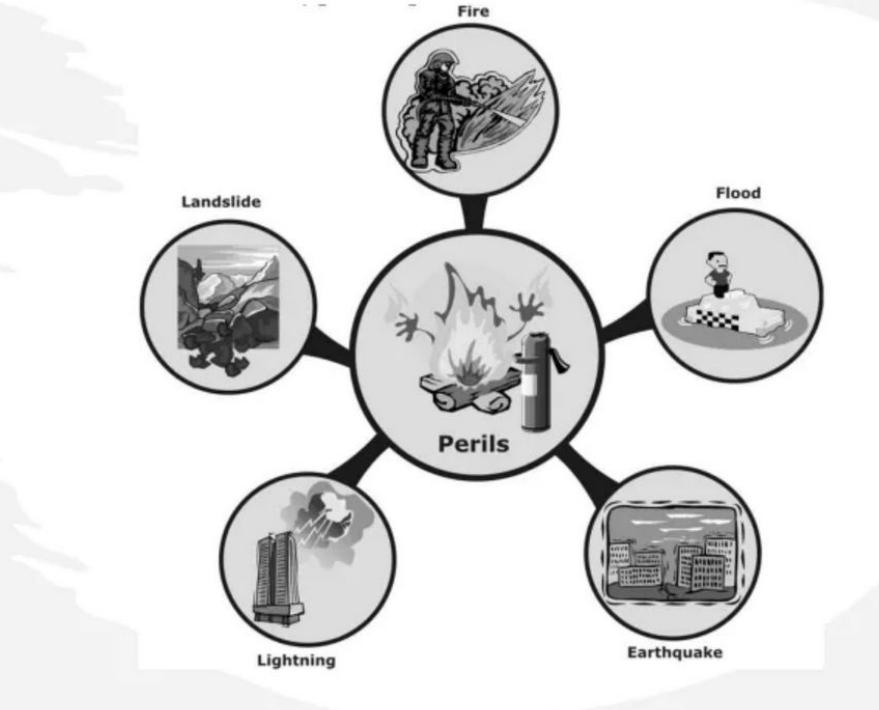what is peril in insurance, Peril in Insurance, Peril meaning in Insurance, examples of peril in insurance, peril in insurance
Peril in Insurance, What is peril in Insurance Meaning
Peril is the cause of loss. Anything that causes the loss is called peril. For example fire, flood, earthquake, lighting, landslide etc.
In other words, we can define " An event or incident that may cause a loss is called a peril."
Insurance does not protect the asset. It does not prevent its loss due to the peril, and the peril cannot be avoided through insurance. Insurance only tries to reduce the impact of the financial loss on the owner or beneficiary of the asset.
Insurance can compensate only for economic or financial losses. It can not compensate for non-economic losses which cannot be measured in monetary terms, as in the case of the death of a person. Non-Economic losses can be love and affection to the family, sentimental attachments, innovative and creative abilities etc. These above losses can not be quantifiable in monetary terms.
If perils can cause damage to an asset, we can say that the asset is exposed to that risk. Risk is the uncertainty of outcome. If there is a chance that the outcome will be different from expectations, there is a risk.
Perils are events which can lead to losses or damages. Risks are the likelihood of loss or damage resulting from the occurrences of perils. The Risk to the owner of a building, due to the occurrence of peril like fire, can be a few lakhs or a few crores of rupees, depending on the extent of the damage. It is also possible that there may be no damage at all.
Insurance is not taken to prevent the peril or to pay compensation if the peril happens. Insurance is taken against the likely damage of the loss that the peril may cause. Insurance is for the risk ( It can be loss or damage ) arising out of the peril.
Insurance is obtained against the possibility that a loss or damage may happen.
The word possibility implies uncertainty. There has to be uncertainty about the risk. Insurance covers only those risks where the possibility of occurrence is uncertain (not confirmed). If the possibility of the occurrence of the event is certain( confirmed ), then that risk will not be covered by the insurance company.

